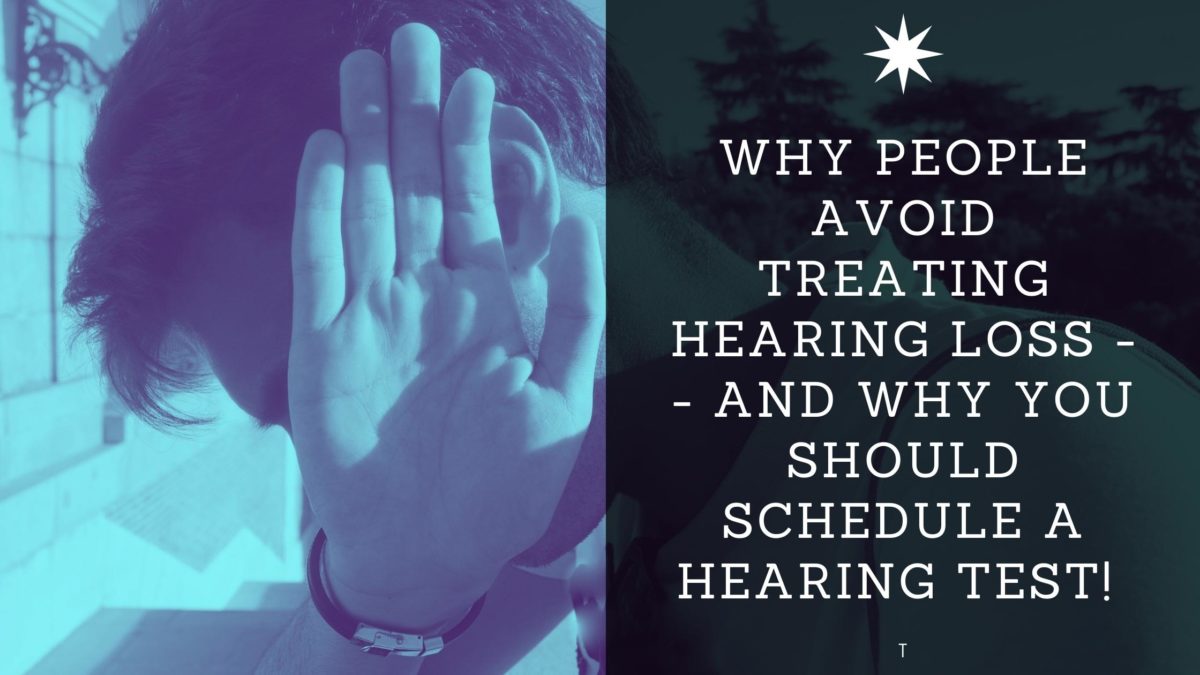Do you have hearing loss? You may not even know it. This is because hearing loss often develops gradually, starting with the loss of only subtle sounds. Often people are not able to self-diagnose hearing loss until it’s become loud enough to affect communication even in the most ideal of listening environments. By then the effects of hearing loss have already begun to ripple into other aspects of life such as your relationships at home and work. The World Health Organization estimates that 466 million people worldwide deal with some form of hearing loss making it the world’s 3rd most chronic health condition. Alarmingly, they report that these numbers are projected to nearly double by 2050 due to misconceptions around hearing loss, and lack of understanding.
Understanding Hearing Loss
Contributing to misconceptions around hearing loss are stigmas around it. People fear that hearing loss will make them feel old or like they have a handicap. While hearing loss is a recognized disability under the Americans with Disabilities Act (ADA), it doesn’t mean you can’t live your life to its fullest. Hearing loss in 90% of cases is sensorineural – meaning it’s due to damage of tiny hair-like cells that transport sound to the brain. This damage is irreversible but with commitment, very treatable. The most common treatment for hearing loss 80% of the time is hearing aids.
Treating Hearing Loss
Links between untreated hearing loss and strains in people’s closest relationships, depression, anxiety, self-isolation, lack of mobility, a greater risk for accidents, and even dementia are undeniable. However, with hearing aids many of these issues can be reduced, reversed, or avoided altogether depending on how soon you start treatment. Hearing aids convert sound waves into electrical signals and send the amplified sound toward the inner ear. Digital hearing aids have the adaptability to be programmed so they only amplify the sounds a person needs to hear, based on a hearing exam. The remaining sound is still perceived using existing hearing, creating an organic listening experience.
Denial and Embarrassment
The unfortunate news is that of the 28 million people in the US alone, who could benefit from hearing aids, only 20% have ever tried them. This may be attributed to stigmas around hearing loss which sabotage people’s opportunities to help reduce the dangerous health risks of hearing loss. Many people feel that hearing aids will make them seem “old”. The truth is that hearing loss can happen to anyone. While presbycusis, also known as age-related hearing loss, is one of the most common causes affecting 50% of people over 75, hearing loss can happen to anyone at any age.
Factors such as exposure to loud noise, medications, chemicals, impact on the head, or chronic ear infections can leave anyone exposed with hearing issues that are better addressed. For those who fear that hearing aids will make them appear old, the confusion that untreated hearing loss can bring daily, can make a person seem much older than simply treating a hearing loss. Today, due to digital technology, hearing aids can be miniaturized enough to fit into the ear canal discretely, so that many might not even know you are wearing them.
People often don’t realize they have hearing issues
One reason that hearing loss goes untreated is that people don’t often realize they have an issue. Hearing loss tends to develop gradually, over time with the loss of certain tones or pitches that degrade first making just some parts of speech hard to decipher. This leaves gaps in audio information that leads to communication breakdown and cognitive strain, leaving your brain struggling to piece together missing parts of conversations. This can be exhausting and frustrating, but the true source may not even be self-identified. It is often family, friends, and co-workers who notice it first. If a loved one suggests that you may have hearing loss, it is coming from a place of concern and care. No one wants to see their loved one’s struggle and most likely it is already impacting your relationships.
Seeking Treatment
Today is the best time to schedule a hearing test, no matter your age. You may or may not have a hearing issue, but it’s best to be on top of your hearing health. Even a mild hearing loss can impact relationships and cognitive function. Schedule a hearing test and find out for sure the status of your hearing.

